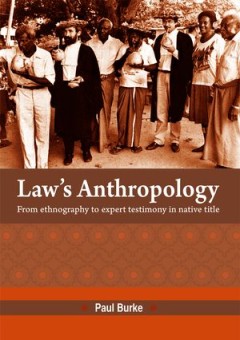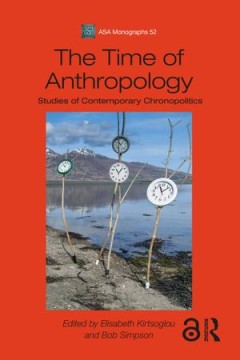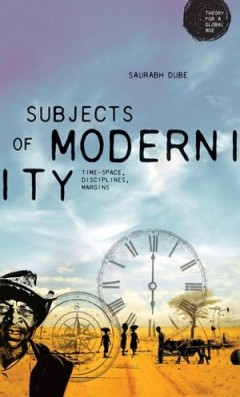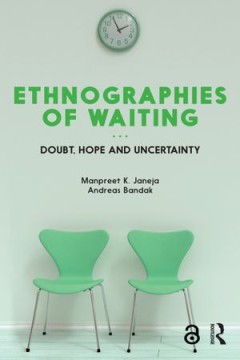Filter by

Law's Anthropology : From ethnography to expert testimony in native title
Anthropologists have been appearing as key expert witnesses in native title claims for over 20 years. Until now, however, there has been no theoretically-informed, detailed investigation of how the expert testimony of anthropologists is formed and how it is received by judges. This book examines the structure and habitus of both the field of anthropology and the juridical field and how they hav…
- Edition
- -
- ISBN/ISSN
- 9781921862434
- Collation
- -
- Series Title
- -
- Call Number
- 340 BUR l

The Time of Anthropology: Studies of Contemporary Chronopolitics
The Time of Anthropology provides a series of compelling anthropological case studies that explore the different temporalities at play in the scientific discourses, governmental techniques and policy practices through which modern life is shaped. Together they constitute a novel analysis of contemporary chronopolitics. The contributions focus on state power, citizenship, and ecologies of time t…
- Edition
- -
- ISBN/ISSN
- 9781000185805
- Collation
- -
- Series Title
- -
- Call Number
- 301 TIM t

Subjects of modernity Time-space, disciplines, margins
This book explores modernity, the disciplines, and their interplay by drawing in critical considerations of time, space, and their enmeshments. Based in anthropology and history, and drawing on social-political theory (as well as other, complementary, critical perspectives), it focuses on socio-spatial/disciplinary subjects and hierarchical-coeval tousled temporalities. The spatial/temporal tem…
- Edition
- -
- ISBN/ISSN
- 9781526105134
- Collation
- -
- Series Title
- -
- Call Number
- -

Ethnographies of Waiting Doubt, Hope and Uncertainty
We all wait – in traffic jams, passport offices, school meal queues, for better weather, an end to fighting, peace. Time spent waiting produces hope, boredom, anxiety, doubt, or uncertainty. Ethnographies of Waiting explores the social phenomenon of waiting and its centrality in human society. Using waiting as a central analytical category, the book investigates how waiting is negotiated in m…
- Edition
- -
- ISBN/ISSN
- 9781474280280
- Collation
- -
- Series Title
- -
- Call Number
- -

21 Legalities and materialities
This chapter reflects on what materiality-inflected methodologies1 can bring to an anthropology of law, and to legal studies more generally. Its starting point is an increasing attention across the social sciences and humanities for objects, and thinking beyond the human. These have often, but not only, emerged from science and technology studies (STS), to which we pay particular attention. How…
- Edition
- -
- ISBN/ISSN
- 9781138956469
- Collation
- -
- Series Title
- -
- Call Number
- -
 Computer Science, Information & General Works
Computer Science, Information & General Works  Philosophy & Psychology
Philosophy & Psychology  Religion
Religion  Social Sciences
Social Sciences  Language
Language  Pure Science
Pure Science  Applied Sciences
Applied Sciences  Art & Recreation
Art & Recreation  Literature
Literature  History & Geography
History & Geography